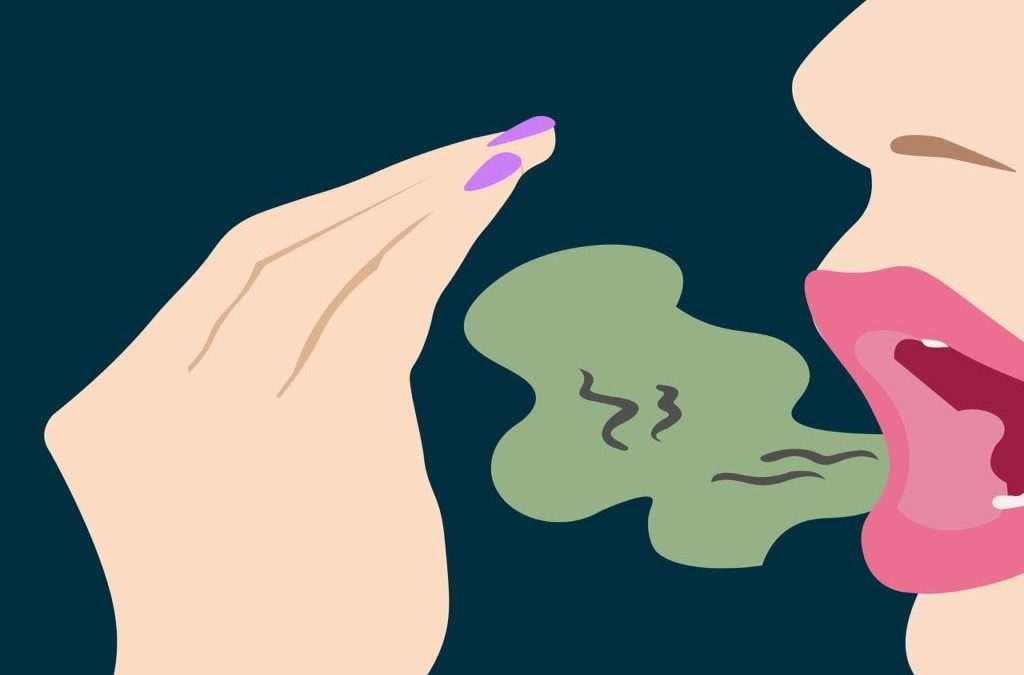With about 200,000 new Type 2 diabetes cases popping up in the UK each year and projections suggesting that nearly five million people could be living with the disease by 2025, it’s time we talk about one of the less glamorous side effects of diabetes—bad breath.
It’s something that can affect those with both Type 1 and Type 2 diabetes, and it turns out it’s a bit more complicated than just forgetting to brush.
Bad breath, also known as halitosis, isn’t just an inconvenience. It can be a sign of something more significant happening in your body.
And if you’re one of the more than 4.9 million people already dealing with diabetes in the UK, you’re likely familiar with the struggle.
Researchers have even figured out that analyzing someone’s breath can help identify prediabetes when the disease is just starting to show itself.
So, Why Does Diabetes Make Your Breath Smell Bad?
Here’s the deal: High blood sugar levels in diabetes can mess with your whole system, including your mouth. When blood sugar levels are up, glucose levels in your saliva go up, too.
That extra glucose is basically a feast for bacteria hanging around in your mouth, which leads to the build-up of dental plaque.
If that plaque isn’t dealt with properly, it can cause tooth decay and gum disease—two major contributors to bad breath.
And there’s more. People with diabetes are also at risk for something called ketoacidosis. This happens when the body can’t use sugar properly because there’s not enough insulin, or the insulin isn’t working well, so it starts burning fat for fuel instead.
That process releases ketones, which are chemicals that can make your breath smell less than pleasant.
If you’ve ever been around someone on a strict low-carb diet, you know what I’m talking about.
Five Real-Life Tips for Kicking Bad Breath to the Curb
Dealing with diabetes and bad breath doesn’t have to be a headache. Here are some straightforward tips to help keep your mouth fresh:
- Choose the Right Toothpaste – Sure, brushing helps keep your teeth clean, but not all toothpaste is created equal. Some brands pack their toothpaste with sodium lauryl sulphate (SLS), a detergent that makes it foam up but doesn’t actually clean your teeth. Plus, it’s been linked to some nasty side effects, like mouth ulcers.Dr. Harold Katz, a dentist and bacteriologist who founded The Breath Company, says a lot of people forget to take care of their gums while brushing: “Many people forget about their gums when cleaning their teeth and just concentrate on the teeth themselves… Try to keep the toothpaste in contact with the gums for as long as possible and avoid rinsing with water. Don’t forget to clean in between your teeth with interdental brushes or floss in addition to your normal brushing. Flossing is an extra step, but it’s an important one, as it helps get in between the teeth where toothbrushes sometimes miss.”
- Chill Out and Manage Stress – Stress isn’t just bad for your mind—it’s also rough on your breath. Dr. Katz explains that when you’re stressed, your body’s fight-or-flight response kicks in, which shuts down certain digestive functions, including saliva production. And saliva is a big deal when it comes to keeping your mouth clean and fresh.“Saliva evaporates and the mouth becomes dry, leading to bad breath,” Dr. Katz points out. A dry mouth gives bacteria a free pass to stick around and create those not-so-pleasant odors. So, finding ways to manage stress—whether through deep breathing, exercise, or just a good chat with a friend—can help keep things moist and fresh.
- Keep Your Mouth Moist – Dry mouth isn’t just an annoyance; it’s an early warning sign of Type 2 diabetes and a big contributor to bad breath. If your mouth feels like a desert, try chewing on some Grether’s Pastilles. These little pastilles are packed with ingredients like sun-ripened berries and glycerine to keep your mouth feeling fresh and hydrated. Plus, they come in tasty flavours like blackcurrant and blueberry. Who says keeping your mouth healthy can’t be delicious?
- Go Alcohol-Free with Mouthwash – Using a mouth rinse can help keep your gums calm and your breath fresh, but steer clear of alcohol-based ones. Dr. Katz recommends sticking with alcohol-free options: “Regular and specific application of alcohol-free mouth rinses will help calm the gum area and work to both eliminate germs associated with gum disease and reduce the formation of biofilm, which can lead to plaque and tartar build-up.” Alcohol-based mouthwashes can dry out your mouth, which just leads to more bad breath. No thanks.
- Swap Out Your Toothbrush Regularly – It’s easy to forget, but your toothbrush doesn’t last forever. Dentists like Dr. Katz suggest changing your toothbrush every two to three months. “Out with the old and in with the new (toothbrush),” he says. A worn-out toothbrush is like a sponge for bacteria, and the last thing you want is to brush that bacteria right back into your mouth. So, mark your calendar and make the switch—your mouth will thank you.
Wrapping It Up
Bad breath doesn’t have to be a side effect of diabetes that you just live with. By making a few smart choices about your oral care routine, managing stress, and keeping an eye on your blood sugar levels, you can keep your breath fresh and your confidence high.
As always, consult with your healthcare professionals for advice tailored to your specific needs.
Stay fresh out there!





